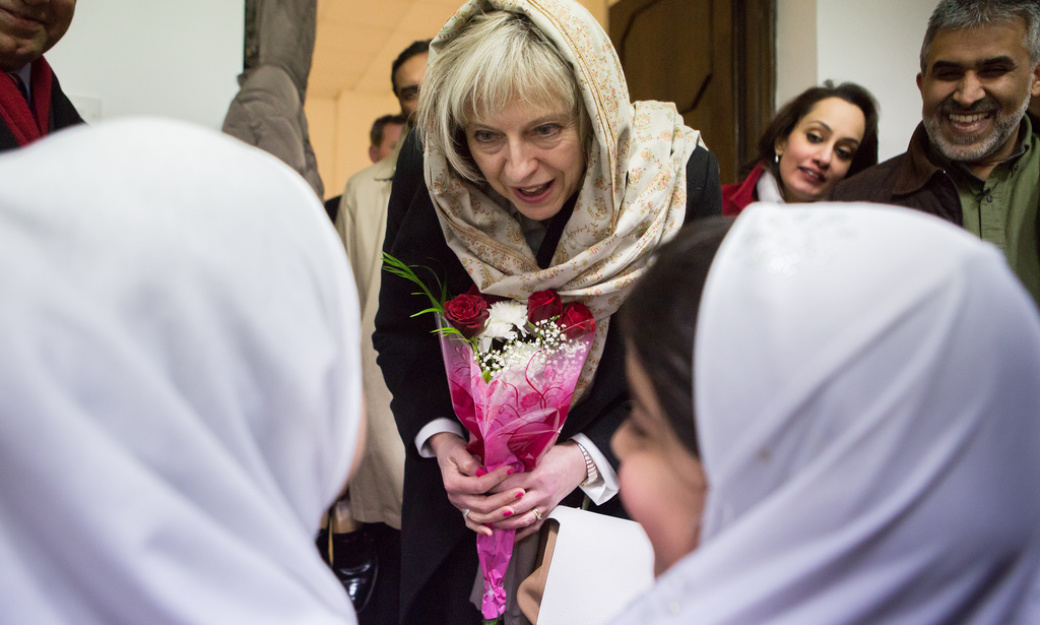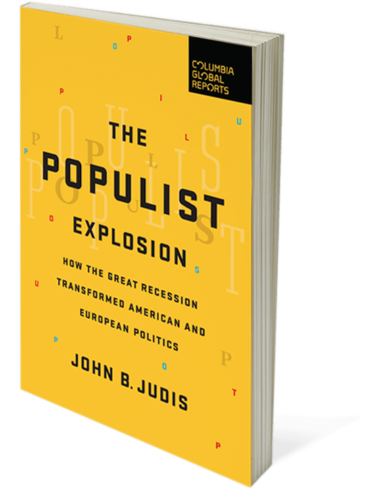The Pretend Populist of the Brexit Election

In April, French polling companies predicted the tightly-contested first round of the Presidential Elections with pin-point accuracy. The current surveys of their British counterparts, by contrast, look like random guesswork. Extrapolating upon the available data, the polling guru Nate Silver has concluded that “anything from a 17-point Conservative win to a 3-point Labour win is now possible.” This is monkeys-on-typewriters territory. But it’s also scrambled what was meant to be a tediously predictable election.
Until recently, the received wisdom ran as follows: Theresa May was enjoying sensational poll numbers because, by embracing post-Brexit populism, she effectively knee-capped UKIP, her challengers on the right, and charmed blue-collar voters away from Labour on her left. But something strange has happened during this campaign. May went to the country promising “strong and stable” leadership and the “best deal” on Brexit. Several missteps later—including one almighty error over social care policy—and opponents have a new label for the Prime Minister: “weak and wobbly.”
 The Brexit Election has become a referendum on May, and the Conservative lead is shrinking by the hour. Theresa May’s brand of populism, it seems, is not particularly popular.
The Brexit Election has become a referendum on May, and the Conservative lead is shrinking by the hour. Theresa May’s brand of populism, it seems, is not particularly popular.
The campaign has unmasked May as a pretend populist. The main give-away has been her willingness to tell voters that they cannot have whatever they want, whenever they want it. If May managed to make her Brexit wish-list read like a letter to Santa Claus, her economic messaging has been remarkably miserly. Britain must “live within its means,” further cuts are inevitable, and growth depends upon paying down the deficit. If the polls are right—and that’s an “if” now visible from space—this is electoral kryptonite.
The message was nevertheless reinforced last week during the BBC Leaders’ Questions, a seven-way slanging match (and an ear-splitting reminder that Britain still hasn’t got the hang of televised election debates). May prudently chose to stay away. But her stand-in, Home Secretary Amber Rudd, repeatedly told the Labour leader Jeremy Corbyn to “stop thinking that there was a magic money tree.” Labour’s spending-spree manifesto, which promises massive re-nationalization and even bigger fiscal stimuli, was economically irresponsible.
Derision for the Magic Money Tree betrays May’s fake populism. The Prime Minister claims she wants to tend to the tree sensibly, to harvest it sustainably, and distribute its yield fairly. How foolish. Any proper populist would have promised to chop down the tree immediately, uproot its base and glut on the falling fruits. Never mind about tomorrow; the people demand action now.
Rudd’s remarks echo the election message that the Conservatives repeated with skull-crushing regularity in 2015: “A long-term economic plan.” But in the hyper-accelerated history of British politics, where a century of news seems to have happened in the last two years, the electoral resonance of this message has faded. Even erstwhile Conservative voters have grown weary of austerity. The “long-term” nature of the economic plan now looks never-ending.
The terror attacks on London Bridge further destabilized an uncertain election. Populists strongmen usually see political opportunities in the tragedies of others, and indeed Trump tried to exploit the attack by sowing further fear over Twitter. May was certainly quick to declare that “enough is enough.” But in many respects, she is the anti-Trump: unflashy, cautious, temperamentally dissimilar to the gaudy spiv who currently occupies the Oval Office. Her British opposite number, Jeremy Corbyn, who has a history of dubious associations with terrorist organizations, including the IRA and his “friends” in Hezbollah, has tried to focus coverage upon the police budget cuts that she oversaw as Home Secretary. The result is a lot of political noise. It remains unclear what, if any effect this will have on election day.
May’s fall from all-conquering uber-politician to embattled bumbler remains based upon the volatility of her poll numbers. Her 20-point lead has evaporated. And yet, under her leadership, the Conservative Party is entering the final days of an election campaign with a polling average of 45 percent, a remarkable figure given the general fragmentation of political loyalties across western democracies. The reason is simple: beneath the turbulence of the campaign, this remains the Brexit Election. And on Brexit, the voters trust May. It is unlikely that she is feigning enthusiasm for its “enormous opportunities.” May sees Brexit as “this great national mission.”
It is the saliency of Brexit that will return Theresa May to Downing Street. And her populist appeal—however phony or fabricated—will probably reward her with a handsome majority.
Rhys Jones is an historian, writer and fellow of Sidney Sussex College, University of Cambridge. He tweets @rhyshistorian

